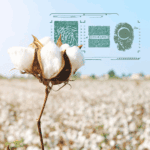Europe
Fight against Deforestation – New Regulation (EU) 2023/1115
On 31st of May 2023, European Parliament published and adopted Regulation (EU) 2023/1115 on the making available on the Union market and the export from the Union of certain commodities and products associated with deforestation and forest degradation. Which aimed at tackling deforestation and forest degradation driven by the European Union (EU) and repeals Regulation (EU) No 995/2010.
This new regulation lays down rules regarding the placing and making available on the EU’s market, as well as the export from the EU of relevant products, that contain, have been fed with or have been made using relevant commodities, with a view to minimising the EU’s contribution to deforestation and forest degradation worldwide, and reducing the EU’s contribution to greenhouse gas (GHG) emissions and global biodiversity loss.
This new regulation shall affect goods classified in Annex I of this regulation, which include as relevant commodity Wood products and relevant products such as: Plywood, veneered panels and similar laminated wood, packing cases, boxes, crates, drums and similar packing, Tableware and kitchenware, of Wood as well as many other products.
For more information, please consult the official publication here.
Sustainability, circular economy and environment
The table below summarises the most recent publications regarding the environment, circular economy and sustainability (non-exhaustive):
| Entity | Date | Publication |
| European Parliament | 05/06/2023 | Fast fashion’s high production and disposal rates have led to significant environmental impacts. The EU aims to combat this by reducing textile waste, promoting longer garment lifecycles, and encouraging textile recycling to achieve a circular economy by 2050. Because of that “The impact of textile production and waste on the environment (infographics)” was published with the aim to aid compliance. |
| European Parliament | 07/07/2023 | Environmental impact of waste management – revision of EU waste framework
The Waste Framework Directive prioritizes waste prevention and re-use to protect public health and the environment through proper waste management. It aims to minimize waste generation and improve separate collection for recycling. |
| European parlament | 06/07/2023 | Proposal on substantiation and communication of explicit environmental claims (Green Claims Directive)
The proposal aims to update Union consumer law to protect consumers and empower them in the green transition. It focuses on providing reliable and transparent information to tackle greenwashing, promote sustainable choices, and integrate sustainability into reporting cycles. This complements the New Circular Economy Action Plan and the New Consumer Agenda. |
| EFSA : The European Food Safety Authority | 03/07/2023 | The EFSA Panel assessed the safety of Coca-Cola HBC’s recycling process and CCH CIRCULARPET recycling process using NGR technology for PET flakes.
In both cass, the melt-state polycondensation step is crucial for decontamination and the process ensures migration of unknown contaminants into food is below 0.1 μg/kg. Recycled PET obtained can be safely used up to 100% for food contact materials, including drinking water, at room temperature, but not intended for microwave or conventional ovens. |
| France Goverment – French Ministry of Ecological Transition and Territorial Cohesion | 06/07/2023 | Decree 2023-504 of June 22, 2023 containing various provisions relating to the environmental assessment of plans and programs aims to make changes to the environmental evaluation process for certain plans and programs in France. It modify R122.17 of French Environmental code by changing and adding new items to the list of evaluated plans and programs for “national low-carbon strategy” (Stratégie nationale bas carbone). |
| France Goverment – French Ministry of Ecological Transition and Territorial Cohesion | 06/07/2023 | Decree of June 16, 2023, establishing the national model for environmental authorization requests sets the national model for environmental authorization applications in France. The applicant can use the provided form (CERFA no 15964*03) available on the website. Repealing the previous decree of 2019. |
| France Goverment – French Ministry of Ecological Transition and Territorial Cohesion | 06/07/2023 | French government open a consultation to establish criteria for removing waste status for pyrolysis oil from a plastic waste pyrolysis operation, for material use within a petrochemical unit, seeking to establish criteria for removing the waste status from pyrolysis oil derived from plastic waste. The project aims to encourage the use of pyrolysis oil and outlines requirements for the composition of plastic waste accepted in the pyrolysis process and the quality of the resulting oil, being in line with the directive n°2008/98/CE. |
| French National Consumer Council (CNC) | 06/07/2023 | The guide (Practical Guide to Environmental Claims for Consumers and Professionals) urges economic actors to conduct a legal audit of their environmental claims and provides guidelines for the use of various environmental claims.
Note: the guide is not legally binding, but it serves as a reference and may be considered legal. |
| Spain Government – Spain Ministry of Ecological Transition and Territorial Cohesion | 19/07/2023 | The information states that errors were noticed in the insertion of Order TED/646/2023, regarding determining when thermoplastic waste is subjected to mechanical treatments and intended for the production of plastic products ceases to be waste in accordance with Law 7/2022. |
France | An end to the penalties for the confusion caused by some recycling markings
On 6th July 2023, the French authorities published Decisions 449872, 450134 & 450158 of June 30, 2023 which cancelled the following decrees:
Decree of 30 November 2020 relating to signs and markings that may lead to confusion about the rule for sorting or returning product waste, which came into force on 1 January 2021.
Specifically, this order defined signs and markings that may lead to such confusion as figures/ graphics representing two or more arrows rolled up and inscribed in a circle.
Point 4 of part II of the appendix to the decree of December 25, 2020, amending the specifications of eco-organizations in the household packaging sector, indicates a penalty to product packaging on which is affixed one of the signs or one of the markings defined in the Decree of 30 November 2020. This penalty was effective from 1 April 2021.
Cosmetics
Launch reliable, transparent and sustainable cosmetic products on the market
Consumers are struggling to comprehend the many labels indicating the sustainability of cosmetic products, and sometimes companies can misrepresent the environmental impact of their products, a practice known as greenwashing. When claims appear to be unreliable, this undermines consumer trust. The EU Commission is committed to combating greenwashing and misleading environmental claims, going beyond the general ban on misleading advertising.
On March 2023, the Commission adopted a proposal for a directive on “green” claims. Currently, it is under public consultation, with a planned deadline for this summer. The directive will define new criteria to stop companies from making misleading claims about the environmental merits of their products and services.
The Eurofins Cosmetics & Personal Care network of laboratories can help you to substantiate your green claims using robust, science-based and verifiable methods for your cosmetic products and packaging. We offer a full range of biodegradability, compostability and recyclability testing. Some of our tests include:
- Ready biodegradability (OECD 301 A,OECD 301 B, OECD 301 D, OECD 301 F)
- Intrinsic biodegradability (OECD 302 B, OECD 302 C)
- Compostability testing (EN 13432 ASTM D6400, in an industrial environment) comprises 4 tests – Chemical composition study – Biodegradability testing (ISO 14855) – Disintegration testing (ISO 16929), – Terrestrial ecotoxicity testing (OCDE 208)
- Compostability testing in a domestic environment (NF T 51800)
Our experts can advise you on the best selection of tests to suit your needs and products. In addition, other tests can complement these studies to determine whether the degraded material remaining after biodegradation/disintegration releases toxic or harmful chemicals: ecotoxicity tests on terrestrial organisms and plants, microplastic analysis, etc.
To find out how Eurofins Sustainability services can help you comply with in-force and upcoming legislation, visit our service page.



